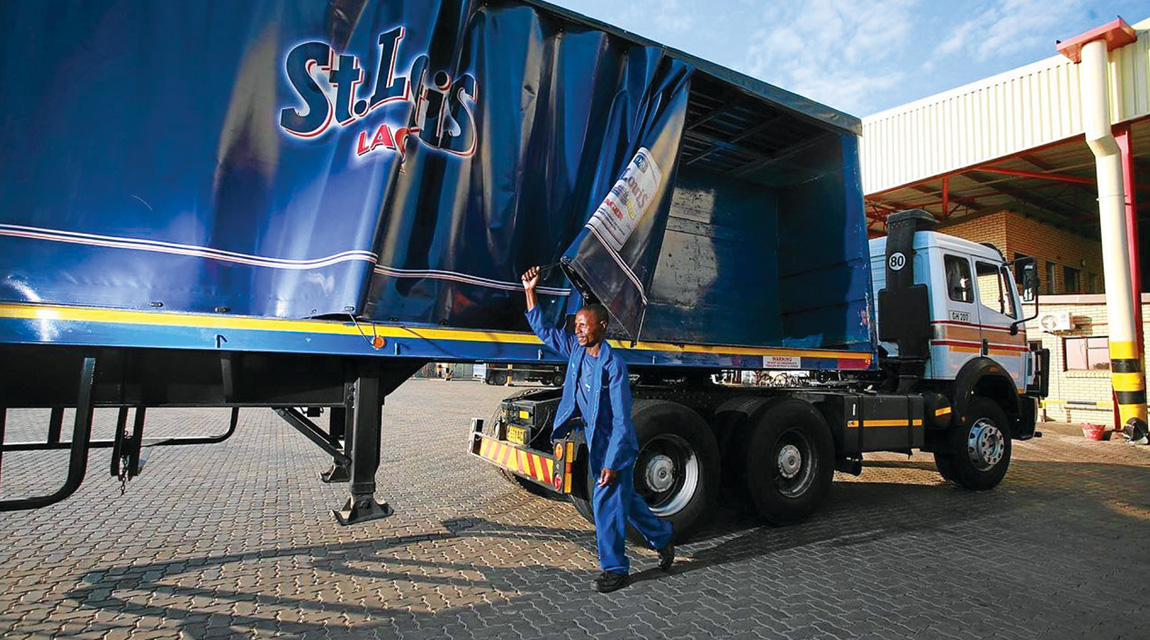Barrels of challenges facing liquor transport

From natural disasters to new legislation, which will require the transport industry to review its security processes, the alcoholic beverage transport sector faces many new challenges. FOCUS reports.
According to trade statistics from the South African Revenue Service (SARS), beverages are among the top-12 products being exported in 2018 with R3,92 billion of exports in the first quarter. The beverages market had a total of R17,6 billion of exports in 2017, ranking among the top-ten products exported from South Africa.
Tanisha Heiberg notes in an article in Reuters that South Africa is the seventh-biggest wine producer globally. While the industry is doing well, the current drought throughout the country, and particularly in the wine regions of the Western Cape, may alter these statistics, as farmers expect a lower crop harvest, which means less fruit and alcoholic beverages to transport.
In an article for News24, Melanie Gosling notes that Western Cape farmers have lost 25 percent of their orchards and vineyards, due to the drought.
She quotes University of Cape Town professor and director of the African Climate and Development Initiative, Mark New: “What we have is a 25-percent reduction in this industry, which will only be incrementally increased if and when farmers can afford to replace those orchards and vineyards. They can’t suddenly reinvest in 25 percent of the farm.”
This will have long-term effects for the farmers and the region, which relies heavily on the export of fruit and wine. VinPro, a non-profit company that represents South African wine producers, cellars and industry stakeholders, estimates that the 2018 crop will be the smallest harvest since 2005, when only 1,1-million tonnes were harvested. In 2017, 1,4-million tonnes of crop were harvested.
Heiberg explains that the South African wine industry exports 440-million litres of wine a year and sells close to the same number of litres locally. The smaller harvest could result in an increase in price.
The tax increase of 8,5 percent for wine and brandy and six percent on fortified wine, announced during the National Budget Speech in February, will further affect alcohol prices.
Production costs are also expected to increase by a further 17 percent with the introduction of the new minimum wage in May. As fuel prices also continue to climb, transport operators in the alcoholic beverages industry will have to reconsider the financial impact of the drought. This sector will most likely have more expensive transport costs and there will be more competition with fewer crops and beverages to transport.
Security is another serious consideration for the transport of alcoholic beverages. The Department of Health is aiming to pass a Liquor Amendment Bill that will place a partial ban on alcohol advertising, but, more importantly, hold alcoholic beverage manufacturers responsible for any branded products found in unlicensed outlets, such as shebeens.
In an article in Business Day, Linda Ensor explains: “If passed, the legislation will hold liquor makers legally liable for branded products found in unlicensed outlets, and for damages caused by any individual consumer while under the influence of liquor.”
The Department of Trade and Industry supported the Bill arguing that South Africans are among the biggest consumers of alcohol globally, with the highest rate of foetal alcohol syndrome.
The transport industry is vulnerable to hijackings and the theft of cargo off trucks. In 2017, alcoholic beverages valued at R3 million were stolen when a truck was hijacked in the Grasmere area of Gauteng.
Instances like these show the complicated nature of the Bill. The manufacturer could be held responsible if this liquor is found in an illegal establishment even though it was not involved in any way.
 If the Bill is passed, it will be more important than ever for transport companies to consider how they approach and prevent theft of their cargo and vehicles. There are various tracking devices to assist in recovering stolen assets, and anti-hijacking training is available for truck drivers.
If the Bill is passed, it will be more important than ever for transport companies to consider how they approach and prevent theft of their cargo and vehicles. There are various tracking devices to assist in recovering stolen assets, and anti-hijacking training is available for truck drivers.
In an interview with Arrive Alive, Stan Bezuidenhout, transport tactical risk specialist, notes: “When truck hijackings first appeared as an issue in South Africa, as far back as 2000, it was almost always about the product. Now, we detect trends with type-specific vehicles often being targeted.”
He adds that truck hijacking syndicates have also become more organised with more firepower and influence. This is partly due to the recent involvement of the military and police in hijackings.
“The trend is for South African police, metro police, private security and even military personnel to be directly involved in hijacking operations,” Bezuidenhout says. He adds that criminals also use signal jammers, diversion tactics, infiltration teams, blackmail and even planted employees.
Bezuidenhout believes that the screening of workers and drivers is less important than having tactical awareness within a company. He explains: “The systems, processes and risk-mitigation strategies need to be professionally developed to make coercion and attack as risky as possible for criminals.”
He adds that drivers can receive training to ensure that they are prepared should a hijacking occur, but, more importantly, it will enable them to detect a potential hijacking scenario.
The National Occupational Safety Association (NOSA) also proposes some anti-hijacking tactics such as sticking to fixed driving routes, avoiding unscheduled stops, parking in secure areas with ample lighting and not stopping at the same rest stops on every trip.
Whether it is a natural disaster, or a new Bill to be passed, the transport industry is often faced with new challenges. It is important to remain a step ahead by being prepared for every eventuality. Transport operators in the alcoholic beverages sector should review the financial implications of the drought and revaluate their anti-hijacking systems in the wake of the Liquor Amendment Bill.
Published by
Focus on Transport
focusmagsa



